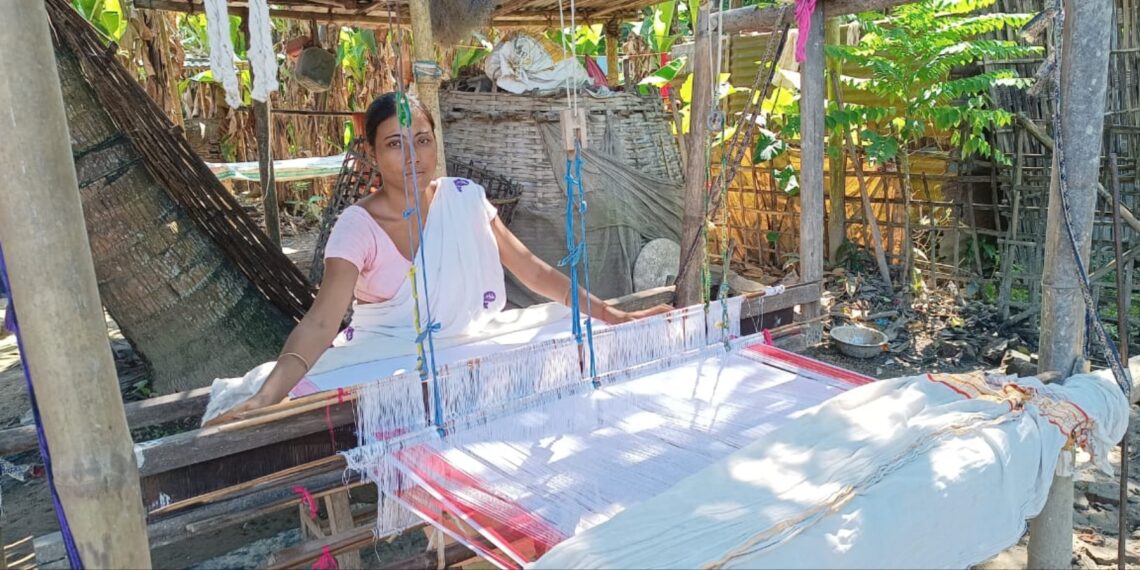GUWAHATI: Recognising the crucial role of community support in achieving effective human-wildlife coexistence, a leading biodiversity conservation organisation is offering high-quality yarn and expert training to female handloom weavers in Assam.
With the combined efforts of the British Asian Trust and funding from the Darwin Initiative, Aaranyak, a biodiversity conservation organisation, has already extended its support to over 200 households across districts such as Jorhat, Sivasagar, Majuli, Dibrugarh, and Tinsukia.
A notable addition is the weaving of gamochas with elephant motifs, underlining the pachyderm’s cultural and ecological significance.
Aaranyak’s vision not only focuses on sustainable livelihoods for these artisans but also seeks to reinforce the age-old weaving traditions of the region. Majuli, globally recognised as the largest inhabited river island, treasures its handloom weaving culture, notably amongst the Mishing tribe. However, challenges such as limited access to essential raw materials like yarn have been an ongoing concern.
To counter this, Aaranyak adopted a strategic approach. By provisioning quality yarn to female artisans and imparting advanced training, the organisation aims to uplift their skills and the finished product’s value. Close to 280 weavers from the mentioned districts have benefited from an 11-day intensive training module, spearheaded by master trainer, Nandeswar Deka, recently.
One such success story is that of Rina Doley from Majuli. The organisation’s intervention transformed her weaving from a personal hobby to a business venture. Having sold traditional Assamese dresses woven from the provided yarn, Doley’s earnings aided in addressing her family’s needs.
Speaking about the initiative, Doley said, “While handloom weaving has its roots deep in our culture, the modern challenges can’t be ignored. Aaranyak’s initiative, especially the provision of high-grade yarn, has been key. It has not only enhanced the product quality but also broadened our product spectrum by introducing us to eco-friendly and natural fibres.”
Beyond the tangible benefits, the initiative has fostered a sense of innovation among the artisans. With training from textile connoisseurs, weavers now produce improved designs, directly impacting their incomes and thus improving the quality of life for their families.















